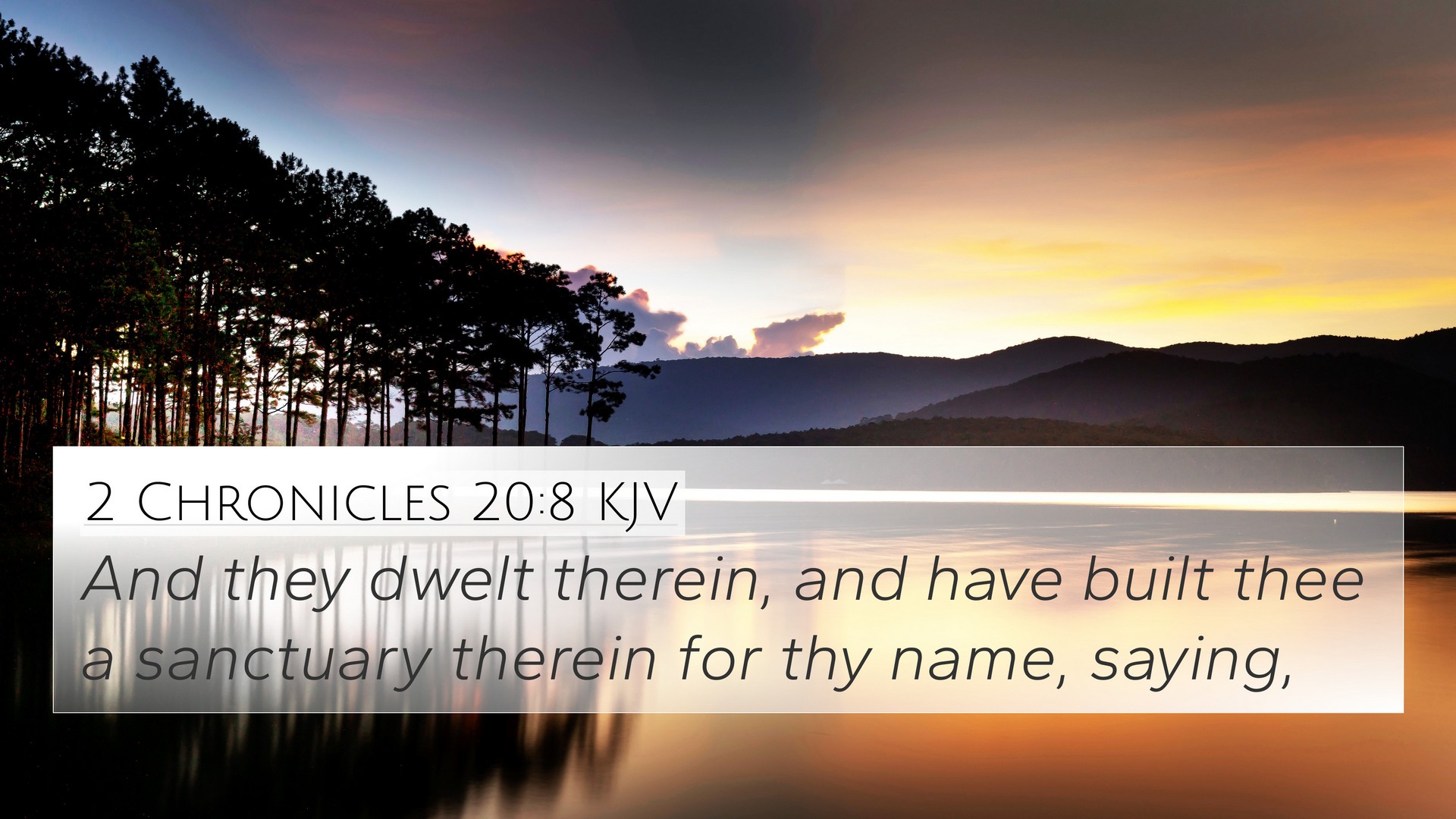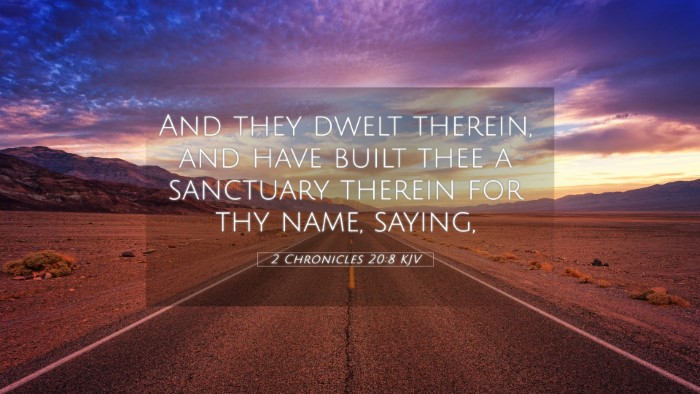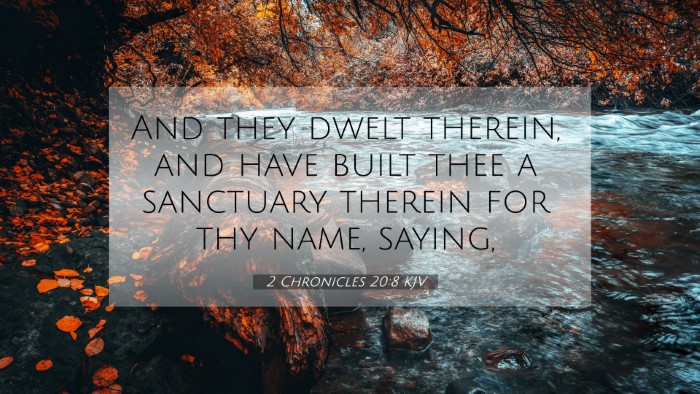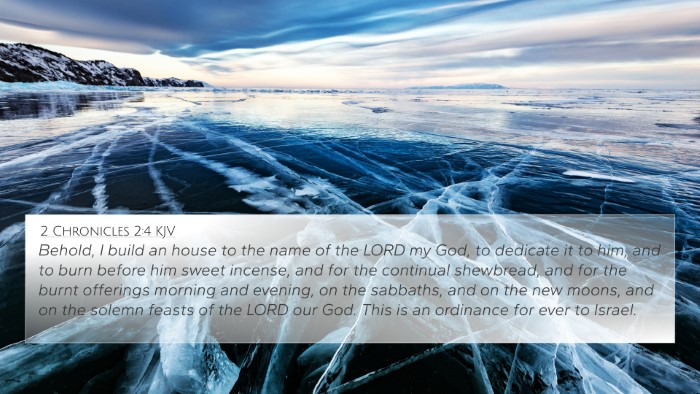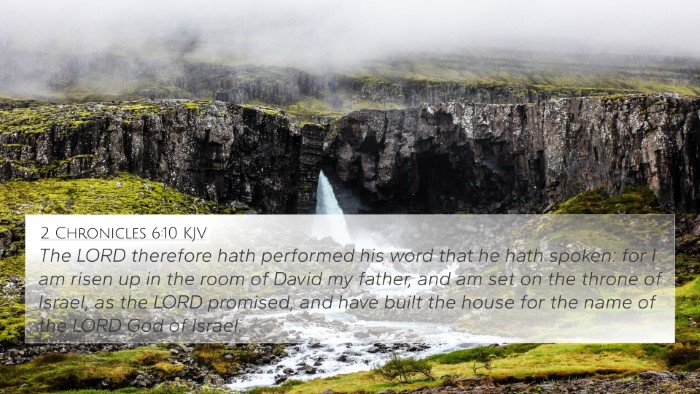Bible Verse Meaning: 2 Chronicles 20:8
Verse Context: The verse reads, "And they dwelt therein, and have built thee a sanctuary therein for thy name, saying," This moment captures the historical significance of Jehoshaphat's prayer and the active commitment of Judah to worship and honor God.
Meaning and Interpretation
2 Chronicles 20:8 provides insight into the faithfulness of the people of Judah during the reign of King Jehoshaphat. The verse illustrates a pivotal moment where the people recognize God's past acts and their implications for present faith and future expectations.
Key Themes:
- The importance of remembering God's past provisions: The people recall how God had established them in the land, linking their history to His promise.
- Building a sanctuary: The act of building a sanctuary is symbolic of dedicating a physical space for worship, which emphasizes the significance of reverence and communal faith.
- Collective identity: This verse highlights the collective nature of worship in Israel, where the actions of a few reflected the faith of the many.
- The significance of prayer: The surrounding context of this verse is a prayer made by Jehoshaphat, underlining the need for divine assistance through prayer.
Cross-References
This verse finds connections and validation through various other scriptures:
- 1 Chronicles 22:19: This verse also speaks about the building of a house for God, linking the theme of sanctity.
- Psalm 78:68-69: These verses reflect God's choice of Judah and the promises associated with that choice.
- Exodus 15:17: Here, the establishment of God's dwelling aligns with the sentiments expressed in 2 Chronicles 20:8.
- Deuteronomy 12:5: This directs Israel to seek a place to dwell and bring offerings, connecting the theme of worship together.
- 2 Chronicles 6:7-8: Solomon recognizes God's fulfillment of promises in building the temple, echoing the significance of dedicated worship places.
- Hebrews 11:9-10: The faith of the patriarchs in seeking a city prepared by God also resonates with the intent of 2 Chronicles 20:8.
- Acts 7:47: Stephen refers to Solomon building the temple, which connects to the earlier establishment of God’s sanctuary.
Tools for Understanding 2 Chronicles 20:8
To delve deeper into the interpretation of this verse, various tools and methods can be employed:
- Bible concordance: Helps locate where similar themes or phrases can be found across texts.
- Cross-reference guide: Provides an easy way to locate scripture that relates to specific themes.
- Bible cross-reference system: A structured system for exploring connections and parallels between scriptures.
- Bible reference resources: Include both printed materials and digital resources for comparative study.
- Cross-reference Bible study methods: Methods such as thematic studies help in understanding broader biblical narratives.
Conclusion
In summary, 2 Chronicles 20:8 not only demonstrates the faithfulness of Judah in recognizing their history with God but serves as an encouragement to believers today regarding the importance of worship, prayer, and remembrance of God's promises. The multitude of cross-references reinforces the depth and interconnectivity of biblical themes, allowing a greater appreciation for the scriptural narrative.
